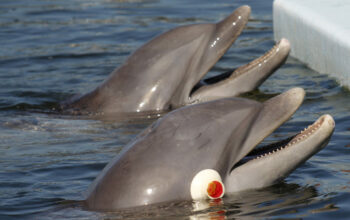Plastic pollution may be even more detrimental to ocean life than we once thought.
Every year, 14 million tons of plastic end up in our oceans, making up 80 percent of all marine debris, the International Union for Conservation of Nature reports. Not only can marine animals become entangled in these plastics, but the manmade items also contain chemicals that, if ingested, can disrupt natural metabolic processes. Plastics may also carry toxins on their surface, like heavy metals, which contribute to these effects.
Now, a new study from the Stazione Zoologica Anton Dohrn in Italy and the University of Exeter in the U.K. has found that high levels of plastic pollution may actually be killing the embryos of a wide range of ocean animals.
“If you have extreme pollution at a time when these species are reproducing, then you don’t have the next generation of those species,” Eva Jimenez-Guri, the study’s first author and an associate research fellow at the University of Exeter, said in a statement.
In their study, published in the journal Chemosphere, Jimenez-Guri and colleagues measured how exposure to PVC pellets—small plastic granules that are used in the production of various products—might affect the healthy development of seven marine species, spanning all major groups of ocean animals.
“When exposed to high levels of new PVC pellets, the species we examined went wrong in different ways,” Jimenez-Guri said. “Some failed to make a shell or a notochord [the midline structure of an embryo,] some failed to form proper bilateral [left to right] features, some just stopped developing after a few rounds of cell division. They all failed to make a viable embryo.”

















